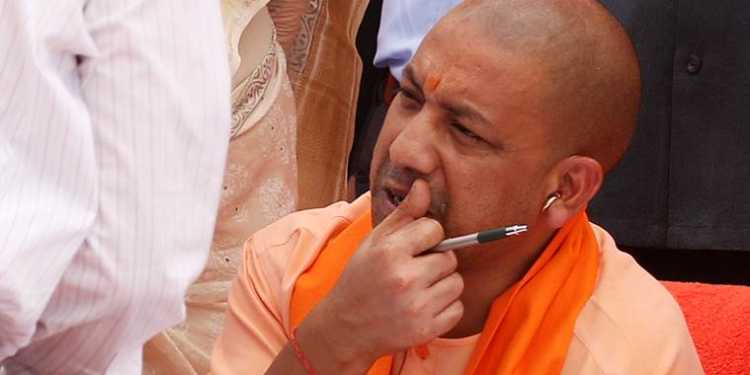The UP government has introduced an ordinance to cap the fees charged by private educational institutions. The bill aims to regulate the arbitrary fee hikes by the private schools including the one run by minority institutions. The private schools will not be allowed to hike the fees more than 7-8 percent per year. The act will be applied to all institutions charging fees above 20,000 per annum and it will be effective from the 2018-19 academic session. If any school violates the rule for the first time then it will be charged 1 lakh rupees and if the school violates the rule the second time then 5 lakh rupees will be charged. For the third time violation, the license of the school will be canceled.
The bill will also restrict the schools from charging the admission fees for more than two times. The first admission fee could be charged at the time of admission and the second after class 10th. Previously, many schools used to charge the admission fee every year or between a few years interval. The bill also restricts the schools from changing the school uniform in less than five years. Now there will be only four types of fee: booklet fee, entrance fee, examination fee and joint annual fee. The fee structure will be divided into two categories. “The first is what the school can charge from students, including admission fees, exam fees, registration fees and annual fees. For all remaining heads, students will pay only for those services which they avail. It will be mandatory for schools to give receipt of all types of fees.” Deputy Chief Minister Dinesh Sharma told News 18.
The Yogi government has taken some bold moves to reform the education system in the state. In this academic year, the government introduced the National Council of Educational Research and Training (NCERT) books for Math, Science, Social Science, Hindi, and English. The UP government had constituted a 40 member committee with members from NCERT, Aligarh Muslim University, Lucknow University, principals of secondary and higher secondary schools and even research scholars from the Khwaja Moinuddin Chishti Urdu Arbi and Farsi University to discuss the introduction of non-language subjects based on NCERT curriculum. The only subjects which will follow the old curriculum are literature, Vyavsayik Shiksha (Business Education) and Krishi (Agriculture).
Another bold reform by Yogi Government was to change the syllabus and uniform of Madrasas based on the recommendations of National Commission for Protection of Child Rights (NCPCR) which found that the quality of education in Madrasas is sub-standard. The educational institutions coming under the Madrasa board taught Urdu, Farsi, and Arabic along with Muslim religious teachings in their syllabus till date. Yogi government in Uttar Pradesh has approved the introduction of NCERT books in Madrasas across the state. The Yogi government has also introduced English and Hindi as mediums of education in Madrasas along with Urdu. To push the assimilation and modernization of Madrasas, the government also decided to propose a new dress code for the students of Madrasas in Uttar Pradesh. The new dress code is simple, modern and is being proposed so as to keep the youth going to Madrasas feel like they too are part of a bona fide educational institution.
The education system in UP worsened under the successive SP and BSP governments. Cheating used to be as normal as exams during the tenure of Akhilesh Yadav. The Yogi government took many steps to curb the cheating including mandatory CCTV cameras to conduct the exams. He directed the officials to take on cheating mafias and blacklist centers that facilitate mass copying during exams. The reforms by the government are expected to produce the good results soon. The state of 21 crore population could never develop until its education is substandard.

























